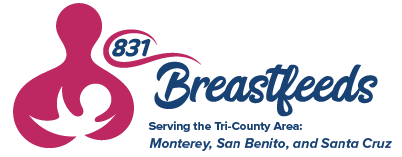
Parent Resources
Medications
It is well established that human milk is the best food for infants. However, the use of medications by a breastfeeding parent can be a source of anxiety and many providers automatically advise mothers to stop breastfeeding when prescribing medication, even when there is little or no risk to the infant. Fortunately, families can access different organizations to seek expert opinions on how medication and substance exposures might affect their infants:
- MotherToBaby.org provides expert, confidential and no-cost information about medications and other exposures during pregnancy and breastfeeding by phone (866.626.6847), text, email and chat, in both English and Spanish. They specialize in answering questions about the safety/risk of exposures, such as medications, vaccines, chemicals, herbal products, substances of abuse, maternal health conditions and more during pregnancy or breastfeeding.
- InfantRisk Center (IRC) is an international call center located at the Texas Tech University Health Sciences Center in Amarillo, Texas. They are available for questions from 8:00AM - 5:00PM CST, (9-4 Pacific time), Monday- Friday, at 1 (806) 352-2519
Cannabis
Consuming cannabis (marijuana, weed, pot, etc.) can affect the health of your baby and is not recommended for women who are pregnant or breastfeeding, or who plan to become pregnant soon. The California Department of Public Health has published an information sheet CDPH-Pregnant Women and Cannabis for parents to explain the risks. Other resources on cannabis during pregnancy and lactation are found in the pamphlets Marijuana and Pregnancy - English and Marihuana y Embarazo (Marijuana and Pregnancy - Spanish). The Centers for Disease Control (CDC) has a webpage with additional information and resources.
Alcohol
Can alcohol pass into breast milk? Yes! Alcohol levels are usually highest in breast milk 30-60 minutes after an alcoholic beverage is consumed, and can usually be detected in breast milk for about 2-3 hours per drink after it is consumed. Expressing or pumping milk after drinking alcohol, and then discarding it (“pumping and dumping”), does NOT reduce the amount of alcohol present in the mother’s milk more quickly. For more information and resources, visit the CDC webpage on alcohol and breastfeeding.
Provider Resources
- MotherToBaby.org is a service of the non-profit Organization of Teratology Information Specialists and provides resources for parents and providers. They specialize in answering questions about the safety/risk of exposures, such as medications, vaccines, chemicals, herbal products, substances of abuse, maternal health conditions and more during pregnancy or breastfeeding. They are available by phone (866.626.6847), text, email and chat, in both English and Spanish. Health professionals are invited to access the webpage designed just for them.
- USDA WIC hosts a webpage with resources for professionals and for materials to share with families on alcohol, tobacco, cannabis, and medications. For an overview of substance use that can be shared with parents, refer to the booklet Give Your Baby a Healthy Start.
- The InfantRisk Center (IRC) is a world-wide call center presently in the Texas Tech University Health Sciences Center, School of Medicine, Department of Pediatrics, in Amarillo. IRC helps both providers and parents evaluate the risk to the infant from exposure to often multiple drugs and keep the mother breastfeeding. IRC operates a clinical pharmacology lab and regularly publishes data on new medications and their effect on lactation. They are available for questions from 8:00AM - 5:00PM CST, (9-4 Pacific time), Monday- Friday, at 1 (806) 352-2519
- The LactMed® database, hosted by NIH, contains information on drugs and other chemicals that breastfeeding parents may be exposed to. It includes information on the levels of such substances in breast milk and infant blood, and the possible adverse effects in the nursing infant. Suggested therapeutic alternatives to those drugs are provided, where appropriate. All data are derived from the scientific literature and fully referenced. A peer review panel reviews the data to assure scientific validity and currency.
Cannabis
- CDC has a provider webpage with links to resources.
- CDPH has a factsheet for providers with references.
- Specific questions can be directed to IRC or MotherToBaby.org.
